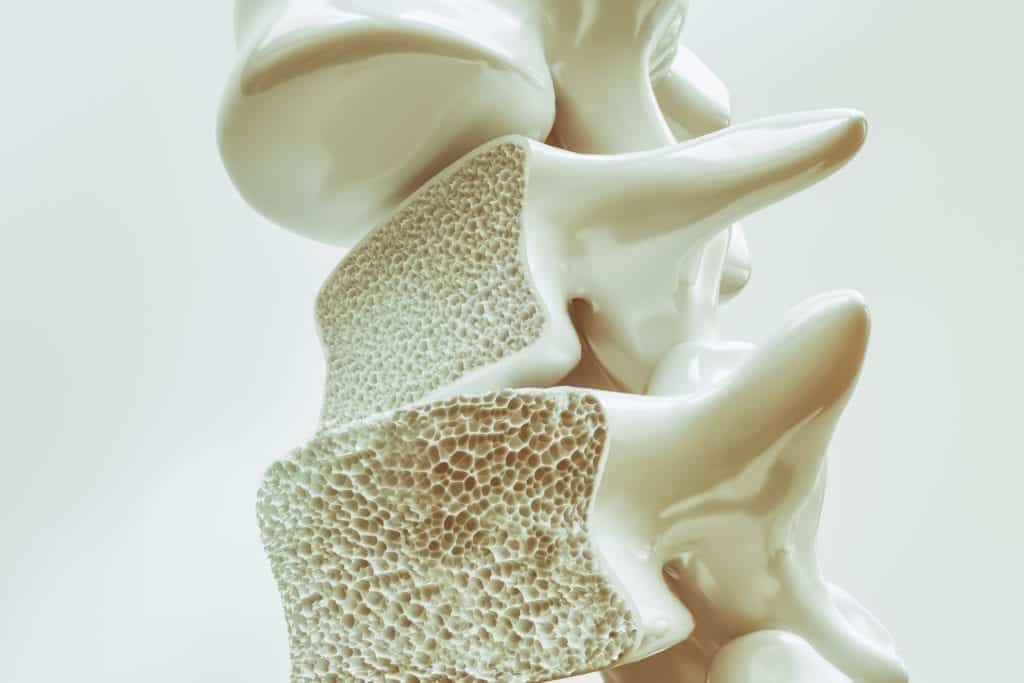
Do you need to take a vitamin D supplement?
Many of us are deficient in vitamin D. The only way to be sure is to have a blood test performed. The test used is the 25-hydroxy vitamin D test. Our hospital lab lists the normal blood level to be 30.0-100.0 ng/ml. The Vitamin D council lists the ideal level between 40-80 ng/ml. I recommend supplementation in patients who have a level less than 30 ng/ml.
What’s the big deal? I live where there isn’t much sun! Why do I need Vitamin D?
It turns out that vitamin D performs many important functions in our body. As more research is completed, we are finding this vitamin helps with physical and mental health.
Vitamin D is one of the four fat-soluble vitamins (A,D,E and K). This vitamin is not found in many foods but is added to milk, tofu, and orange juice. Shitake mushrooms are also a good source of vitamin D.
Our bodies synthesize vitamin D when the skin is exposed to ultraviolet light from the sun. If we aren’t getting enough sunlight and eating enough foods rich in vitamin D, we are likely deficient in this vitamin.
The other way to get this vitamin is to take a supplement. All supplements are not created equal. The Sunshine Nutraceutical Vitamin D supplement is made in the USA in an FDA inspected facility. Our supplement contains 5,000 IU of vitamin D3 in a soft gel capsule.
AD
Disclosure: This post may contain affiliate links, meaning, at no additional cost to you, I may earn a commission if you click on, or make a purchase through a third-party link.
Being Deficient In Vitamin D Comes With A Cost. Here Are Several Problems You May Face:

Osteoporosis
Osteoporosis occurs when the body loses too much bone tissue or is unable to replace bone loss efficiently. This causes the bones to become weak and are more easily broken. People with this condition may break a bone simply by bumping into something or sneezing.
The first sign that you have osteoporosis is usually when you break a bone. People with reduced bone density do not feel any different. The chances of a person with osteoporosis breaking a bone is 50% for women and 25% for men during their lifetime
You have a higher risk of breaking a bone if you:
- Are a smoker.
- Have a low body weight.
- Are female.
- Have broken a bone previously.
- Drink three or more alcoholic beverages daily.
- Have gone through menopause.
- Are over fifty years old.
- Have low calcium and vitamin D intake 2
The most important mineral in your bones is calcium. Vitamin D helps the bones absorb calcium. If you don’t get enough vitamin D, calcium cannot be absorbed for use by the bones. More calcium in the bones increases density which decreases the chance of a bone fracture
The incidence of broken bones increases during the winter months. Some researchers believe this is due to lower levels of vitamin D
A study published on August 1st, 2019 examined the effect of vitamin D levels on fractures in 287 elderly women with at least one previous bone fracture. This study concluded that vitamin D deficiency was associated with an increase in fracture severity as well as bone loss.

General Anxiety Disorder
People with Generalized Anxiety Disorder (GAD) spend a great deal of time worrying excessively about many different things.
They may be convinced the world is coming to an end or always worry about money, health issues, family members, or their jobs.
This disorder can be debilitating if it becomes severe. People with this disorder may be afraid to leave their houses.
A study published in 2019 looked at the effects of vitamin D on GAD. Thirty patients with GAD and vitamin D deficiency were split into two groups of 15 patients each. One group received standard of care (SOC) only, while the treatment group received SOC plus 50,000 IU vitamin D weekly for three months.
The Generalized Anxiety Disorder 7-Item (GAD-7) scale was used in both groups to measure changes in anxiety levels. The vitamin D group had significant increases in serotonin levels, and their GAD-7 scores also improved. The group receiving SOC only showed no changes in GAD-7 scores or serotonin levels.

Attention-Deficit/Hyperactivity Disorder
Attention-Deficit/Hyperactivity Disorder (ADHD) is characterized by a persistent pattern of impulsivity, inattention, and or hyperactivity that interferes with occupational, social, or academic functioning. This disorder may begin in infancy and may continue throughout adulthood.
The effect of vitamin D on ADHD was studied using fifty ADHD patients and fifty non-ADHD controls. The Conners’ Parent Rating Scale (CPRS) was used to assess ADHD symptoms, and serum 25-hydroxyvitamin D levels were measured using an ELISA kit.
Vitamin D levels were assessed using the following scale:
Serum 25OHD less than 10 (severe deficiency)
10-29 (mild deficiency)
>30 (sufficient vitamin D level)
Patients with ADHD had significantly lower serum levels of vitamin D (16.57 +/- 9.09 ng/ml) compared to the control group (22.01 +/- 12.67 ng/ml).
A severe vitamin D deficiency was 3.36 times more likely to be found in the ADHD group.
This study supports the monitoring of vitamin D levels in patients with ADHD.

Tuberculosis
Tuberculosis (TB) is a disease caused by Mycobacterium tuberculosis. This disease mainly affects the lungs but may also affect the kidneys, brain, or spine. It is spread by tiny droplets in the air produced when an infected patient coughs or sneezes. This disease can be life-threatening.
A nested case-control study was conducted looking at the effect of vitamin D on decreasing the progression of tuberculosis (TB).
Vitamin D has shown to have some impact on immunity. Vitamin D deficiency may also increase the risk of TB due to its effect on diabetes. Diabetes is a known risk factor for TB, and vitamin D is known to decrease diabetes risk.
In this meta-analysis, it was determined that low vitamin D levels were associated with the progression of TB. This effect was found to be dose-dependent. This raises the possibility of using vitamin D supplementation in high-risk populations to help decrease TB risk.

Alzheimer’s Dementia
A prospective cohort study of 498 older women was conducted in 2012 to determine the effect of vitamin D on dementia. All subjects received baseline cognitive testing utilizing the Pfeiffer Short Portable Mental State Questionnaire. Only those scoring above 8 (normal cognitive function) were included in the study.
After a seven-year period, the Mini-Mental Status Exam (MMSE) and Grober and Buschke test were conducted to screen for dementia.
It was determined that the subjects with dementia had a lower average vitamin D intake than those without. (50 vs 59 ug/wk).
The subjects in the highest vitamin D intake quintile had a lower incidence of dementia than those in the remaining four quintiles combined (4.1% vs. 17%).
This study did depend on accurate reporting of vitamin D intake by the subjects tested. About half of the subjects were lost to follow-up during the study period.
Another small randomized controlled study was conducted in 2015 to determine the effect of vitamin D supplementation on the treatment and prevention of Alzheimer’s disease. Subjects were 60 years of age or older with an MMSE score of less than 24.
Two groups were randomized. The active group had a baseline vitamin D level of 8.2 ug/ml. This group received 4,000 IU vitamin D supplementation daily. The control group had a baseline vitamin D level of 9.3 ug/ml and received no vitamin D supplementation.
The MMSE was administered every three months. No difference was found between the two groups after three months, but a significant difference occurred after six months (24 vs. 22). Although the sample size was small, a positive effect of vitamin D supplementation was observed.
If you are interested in reading about Lewy Body Dementia follow this link.

Depression
I became interested in vitamin D due to its effects on depression. I see a large number of depressed patients and have noticed many have a sub-therapeutic vitamin D level.
People who are depressed feel unhappy most of the time. They may lose interest in things they have enjoyed in the past. Depression can cause the person may sleep too much or too little. They may have a difficult time concentrating and isolate. Depressed patients may have a change in appetite and may have low self-esteem.
Researchers believe vitamin D may increase the amount of serotonin in the brain.
Increasing serotonin and other monoamines are the mechanisms of action of many antidepressants available today.
Even though there seems to be a link between vitamin D and depression, conflicting evidence still exists.
There have been many studies conducted, but it remains unclear whether vitamin D helps treat depression or whether vitamin D levels are just lower in depressed patients.
A study conducted in the Netherlands in 2014 showed low vitamin D levels were associated with the severity and presence of depression. This study followed 1102 depressed patients aged 18-65 years and 790 patients who were not currently depressed but had been in the past.
A study in Finland in 2015 found higher serum concentrations of vitamin D were associated with a lower incidence of depression. The investigators believe higher vitamin D levels protect individuals from becoming depressed.
I am a firm believer in utilizing vitamin D supplements for those who are depressed. My recommendation is to take 5000 IU daily. Vitamin D levels can be obtained during your yearly health check-up.
Although I am not depressed, I take vitamin D daily to prevent depression. I live in Oregon and don’t get much sun, especially during the winter months. My vitamin D levels have been low in the past.
Can I Take Too Much Vitamin D?
Yes, because vitamin D is a fat-soluble vitamin, it can accumulate. Hypercalcemia, an increased level of calcium in the blood, is the major consequence of taking too much vitamin D. Hypercalcemia can cause nausea, vomiting, frequent urination and weakness. It may also lead to the formation of kidney stones. A person would need to take a very high dose of vitamin D over a long period to become toxic.

Vitamin D is a critical substance used by our bodies in many ways. I have highlighted many uses of this vital vitamin in this post.
I have noticed in my practice that a large percentage of depressed patients have a low vitamin D level. I believe keeping your level therapeutic is a good step in feeling better and helping your body function as efficiently as possible.
I always recommend vitamin D supplementation in any patient with a level less than 30 ng/ml. It is an easy preventative measure.
If you have any questions or need further information, please feel free to contact me. As always, I want to thank you for reading my blog. If you have any subjects you would like to learn about; please let me know.
We can all live a happy, healthy, healing life!
Get Our Monthly Newsletter Sent to Your EMAIL Sign up Below

Michael J. Brown, RPh, BCPS, BCPP
Mr. Brown is a Clinical Pharmacist specializing in pharmacotherapy and psychiatry.
Feel free to send Michael a message using this link.


